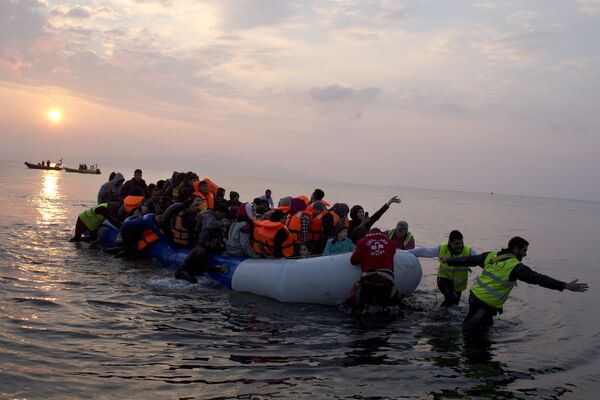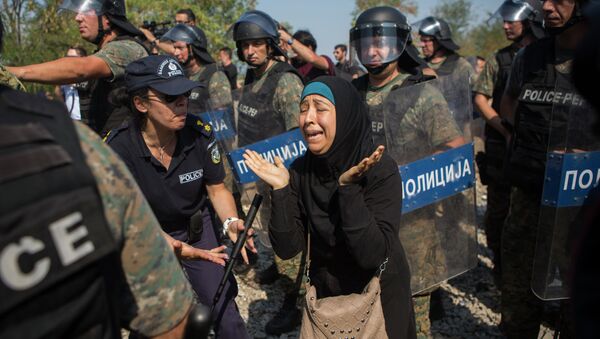The European Council, in September 2015, agreed to relocate 120,000 refugees from Greece and Italy to EU member states, on top of 40,000 it had already agreed to relocate in March that year. One year on, out of a total of 160,000 only 5,233 have actually been moved — just over three percent.
In Greece many men, women+ children eligible for EU relocation still live in sites with poor conditions and security pic.twitter.com/0bbagVCmbh
— UN Refugee Agency (@Refugees) September 14, 2016
Out of the 25 EU countries involved in the scheme, so far, only 15,000 places have been offered, because of opposition to the use of mandatory quotas to designate how many refugees a country will take under the scheme.

Broken Hope
The news comes as human rights group Amnesty reveals in a new report, "Our hope is broken," that migrants are living in appalling conditions and the uncertainty asylum seekers feel about their future is fueling tensions that have erupted into violence in a number of camps.
Last year #EU states promised to take 66,400 #refugees from Greece. 1 year on refugees tell #Amnesty "our hope is broken" @AmnestyOnline pic.twitter.com/kbSiL8OKcI
— Fotis Filippou (@Fotis_Filippou) September 22, 2016
According to the report, Greek police, usually citing lack of capacity, rarely intervene to ensure their safety or prevent further violence.
Many — including young children — Amnesty International spoke to, feel unsafe in the camps. Fearing retaliation and knowing that the police are unlikely to intervene, many asylum seekers are deterred from reporting violence.
"The solidarity of individuals across Europe stands in stark contrast to the paralysis of Europe's leaders. The EU is not just far from sheltering a proportionate share of the world's 21 million refugees; it is also failing in the very manageable task of offering dignity and safety to those that have survived the perilous journey to get there," Amnesty said.
The flood of people making the land journey through the West Balkan route led to many countries closing their borders — against the principle of a Schengen borderless Europe — exposing massive security flaws at EU's external borders.
The humanitarian crisis is further deepened by the gradual failure of the controversial EU-Turkey migrant deal under which those refused asylum in Greece are returned to Turkey for EU cash.
That deal is slowly becoming unraveled because of rising opposition to the deal within Europe over Turkish President Recep Tayyip Erdogan's increasing grip on power, clampdown on opponents and serious doubt over Turkey's record on free speech and human rights.



